Feature
Zefira Valova: Leading the way in Early Music
Share this
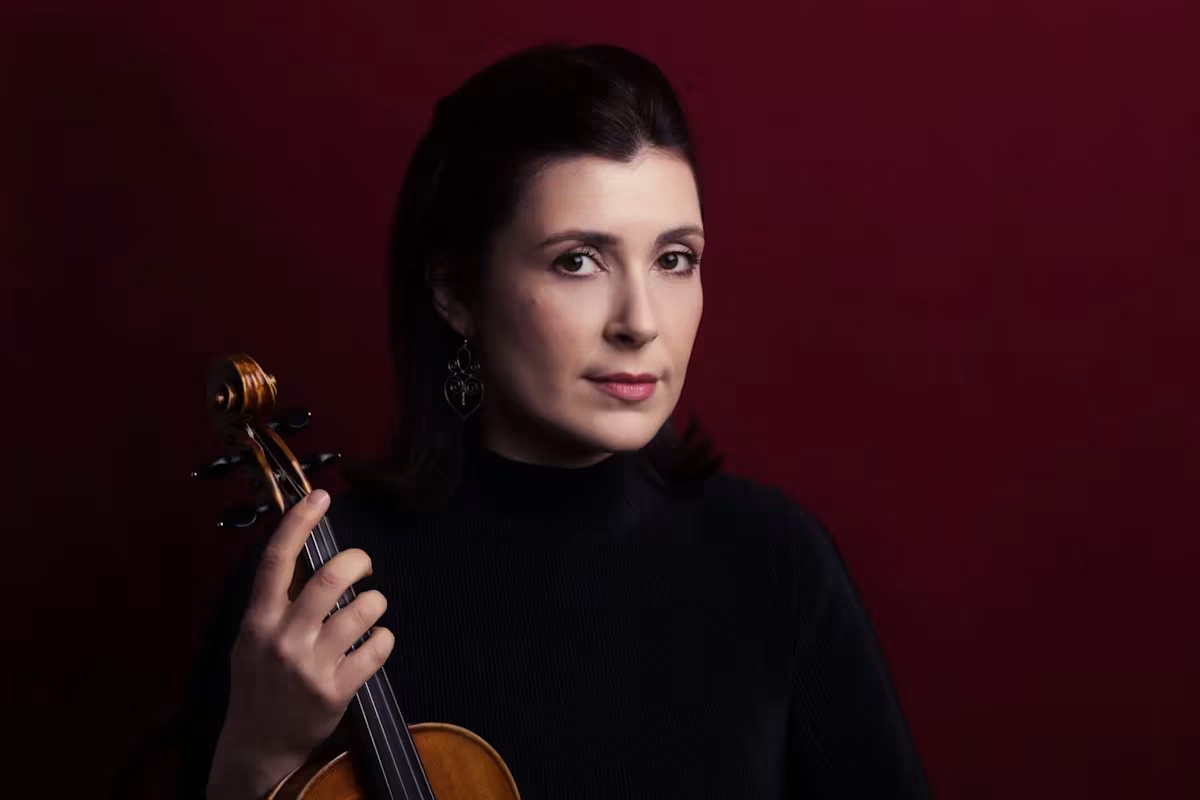
BY SIMON MUNDY | FIRST PUBLISHED 07 SEP 2025
Violinist Zefira Valova has become a central figure in Europe’s Early Music scene while championing Baroque performance in her native Bulgaria. From leading ensembles like Il Pomo d’Oro and Arcangelo, to directing the Sofia Baroque Arts Festival, Valova balances international acclaim with grassroots advocacy. Ahead of her appearance at the London International Festival of Early Music 2025, our Writer-in-Residence Simon Mundy explores her artistic journey, her mission to enrich Bulgaria’s Early Music scene, and the passion that keeps driving her forward.
Zefira Valova has found herself to be a natural leader throughout her entire professional life as a violinist. ‘I was already leading an orchestra in Bulgaria before I discovered playing in an Early Music way’, she says, ‘so, nothing much changed, just a slightly different language.’ Valova did her masters in Bulgaria, then went to Amsterdam. She was at the conservatory there in 2010 and 2011, studying with Lucy van Dael. Thanks to the political change that saw Bulgaria join the EU in 2007, she could take part at the European Union Baroque Orchestra’s audition week, held in Echternach, Luxembourg – in those days a superb way for young musicians to test their standard in workshop sessions. At the end of the week, the best 30 or so became the orchestra for the following year. ‘When I auditioned for EUBO, I found they were talking about gestures and phrasing, ornamentation and sensitivity in a way that was completely lacking at home,’ she remembers.
Valova was picked, and soon found herself leading EUBO, too, first as a member with Roy Goodman directing, then as guest leader with Lars Ulrik Mortensen, Ton Koopman and Alexis Kossenko. Like many players from Eastern Europe in the early years of this century, coming to Western centres of performance practice allowed her to expand her thinking from the rather rigid teaching at home, which was (and, to a large extent, still is) anchored to a classical music system modelled on pre-World-War-II Vienna and post-war Moscow. ‘Nevertheless, my violin professor in Sofia, Yosif Radionov, encouraged me to perform rare concertos by Johann Georg Pisendel; I knew Biber and Zelenka from chamber-music gatherings, so I am not a typical example.’
Lars Ulrik Mortensen directs the European Union Baroque Orchestra (with Zefira Valova as konzertmeister) in Corelli’s Concerto grosso in D, Op. 6 No. 4 (Oct 2015, St John’s Smith Square, London)
‘I spent several years in France, where I discovered its specific ornamentation taste and the links between Early Music and folk traditions’, says Zefira. In Bulgaria, Early Music is still thought of as well beyond the mainstream. ‘In 2024, folk-trained professionals took the initiative and discovered the baroque repertoire in their own language, which we have done within the framework of the Sofia Baroque Arts Festival: Bach’s and Telemann’s chamber works, with traditional instruments featuring solo parts. It has been an establishment of new levels of interchange and co-operation between genres and styles.’
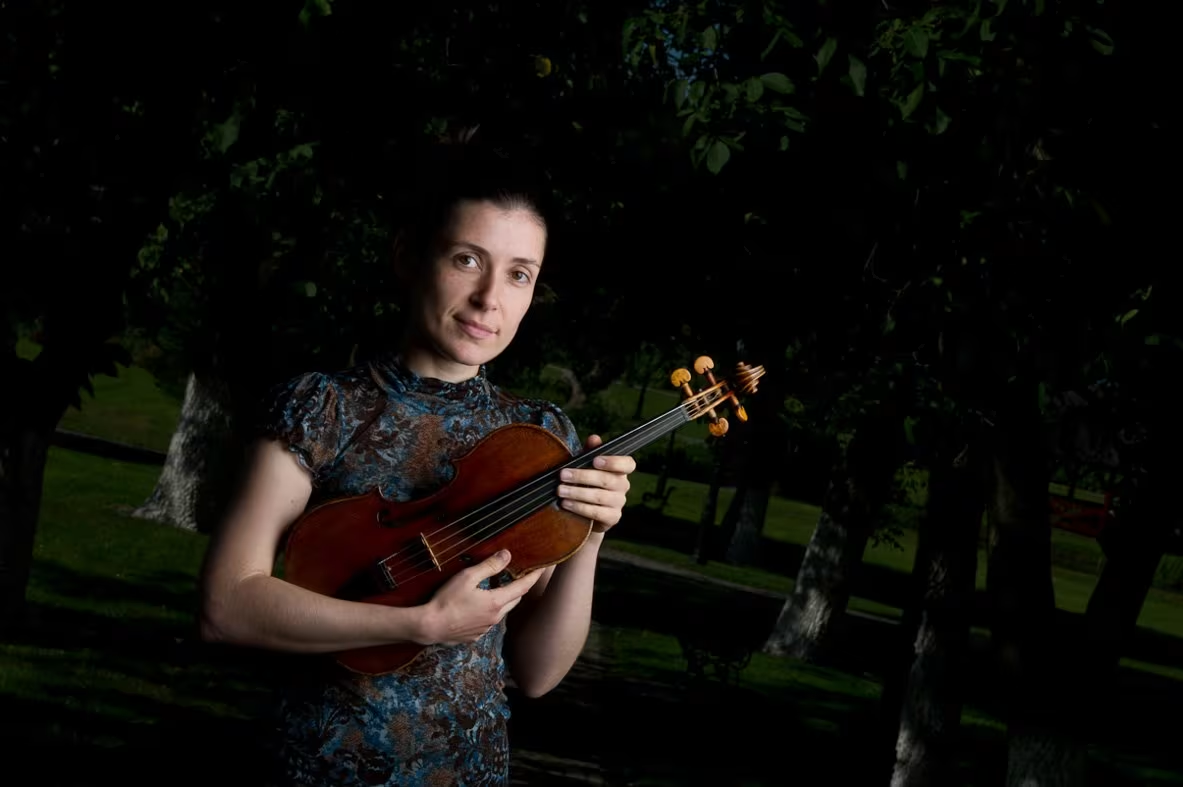
It was to counter the lack of an Early Music tradition in Bulgaria that Valova was one of the founders of the Sofia Baroque Arts Festival, now about to have its 19th edition. ‘We started it almost as a joke in 2006 with a group of colleagues spread all over the world. There was no real funding, but with enthusiasm and support from our families, we made it work.’ This year the festival will begin on 1 October, and will have about eight concerts over the following few weeks until 19 November.
Unlike cities in western Europe, Sofia does not have venues that lend themselves naturally to Baroque music. Because it was an outpost of the Ottoman Empire for nearly 500 years, there are no princely palaces with elegant ballrooms. The Orthodox churches are much smaller generally than their Catholic counterparts, and were never places for instrumental music. It is a lack Valova, as the festival director, has to contend with every year. ‘There are not many appropriate venues in Sofia. The aula of Sofia University is the only one with the right spirit and a good mix of materials, like wood, marble and leather. It has been our partner for many years.’ She also uses the Sofia City Art Gallery and the National Art Gallery, Bulgaria. ‘In 2023, a collaboration with Sofia Opera enabled performances of Handel’s Amadigi di Gaula with the Sofia Baroque Arts Festival Orchestra.’
Soprano Rumyana Kostova, accompanied by Festival Baroque Arts Orchestra, performs Oriana’s aria, ‘Ch’io lasci mai d’amare’, from Handel’s opera, Amadigi di Gaula.
Away from home (and her children) in Sofia, Zefira still plays all around Europe. ‘A month of touring is especially hard. I prefer a pattern of 30 per cent playing abroad and being at home for the rest.’ She has led the excellent ensemble Il Pomo d’Oro since 2015. ‘It is such a diverse ensemble, and each new programme surprises us. With Il Pomo d’Oro, we undertook the recording of major symphonic works by Mozart in a brilliant way under the direction of Maxim Emelyanychev.
Il Pomo d’Oro (Leader: Zefira Valova) performs the opening movement of Mozart's Symphony No. 40, conducted by Maxim Emelyanychev
We are performing the greatest operas by Handel with splendid soloists directed by Francesco Corti, and many more chamber concerts and recitals of the most sought-after voices on stage worldwide.’ She also spends time with Helsinki Baroque Orchestra, which lets her into the world of big Classical and Romantic productions. ‘I lead Arcangelo in two or three projects per season, which is a very good reason for me to travel to the UK and meet great musicians with the elegant direction of Jonathan Cohen. I play solo and chamber music, too. I need it. I enjoy the German violin tradition. I love Mozart and Beethoven, but I am drawn increasingly to the early 17th-century repertoire, though I came to it in reverse chronological order.’
Zefira Valova performs Chevalier de Saint-George’s Violin Concerto in D in her recording with Il Pomo d’Oro for Aparté Records.
A frequent collaborator is the recorder virtuoso, Erik Bosgraaf, who is now the Artistic Director of the London International Festival of Early Music, among other duties. ‘Erik and I first met 20 years ago, and he has often come to the festival in Sofia, so now he has asked me to join him at LIFEM. (She’ll be playing a selection of Fantasias by Telemann for solo violin at St Michael & All Angels in Blackheath.) We’ve been working on Telemann’s late duos for two recorders, but I am a fair partner playing on the violin. We’re also performing in Cape Town, South Africa, in September.’
Erik Bosgraaf and Zefira Valova having a general rehearsal run of Telemann’s music in the early Christian basilica in Plovdiv for the Balabanov Music Festival 2024
The festival in Sofia is still Valova’s pride and joy, though. ‘Directing it allows me to plan programmes – so far I’ve put together about 70 through the years. We really spoil the Sofia audience. My personal wish is that Sofia does not remain the only Early Music festival in Bulgaria. Sofia still feels isolated. I would like to co-operate more with neighbouring countries, but the public transport is not good in this part of Europe, and that makes it harder than one imagines.’
In making Early Music an inherent part of artistic life in her home country, Zefira feels there is ‘a long way to go. The Music Academy still lacks the mindset that Early Music is important. Students have to go abroad to study it. In some respects, we are still far behind. We need to open minds, spark curiosity, and raise the quality. I’ve been trying to encourage this, and I will continue to invest the time because I believe it’s possible.’ All this sounds exhausting, but Valova smiles: ‘I’ve had two weeks of complete rest this summer, which means my love for the violin is refreshed!’
You can see Zefira Valova perform in London on 14 November at the London International Festival of Early Music, where she will be playing works by Telemann for solo violin. This year’s edition of Valova’s Sofia Baroque Arts Festival will take place between 1 October and 19 November, comprising eight performances in total.
Share this
Keep reading
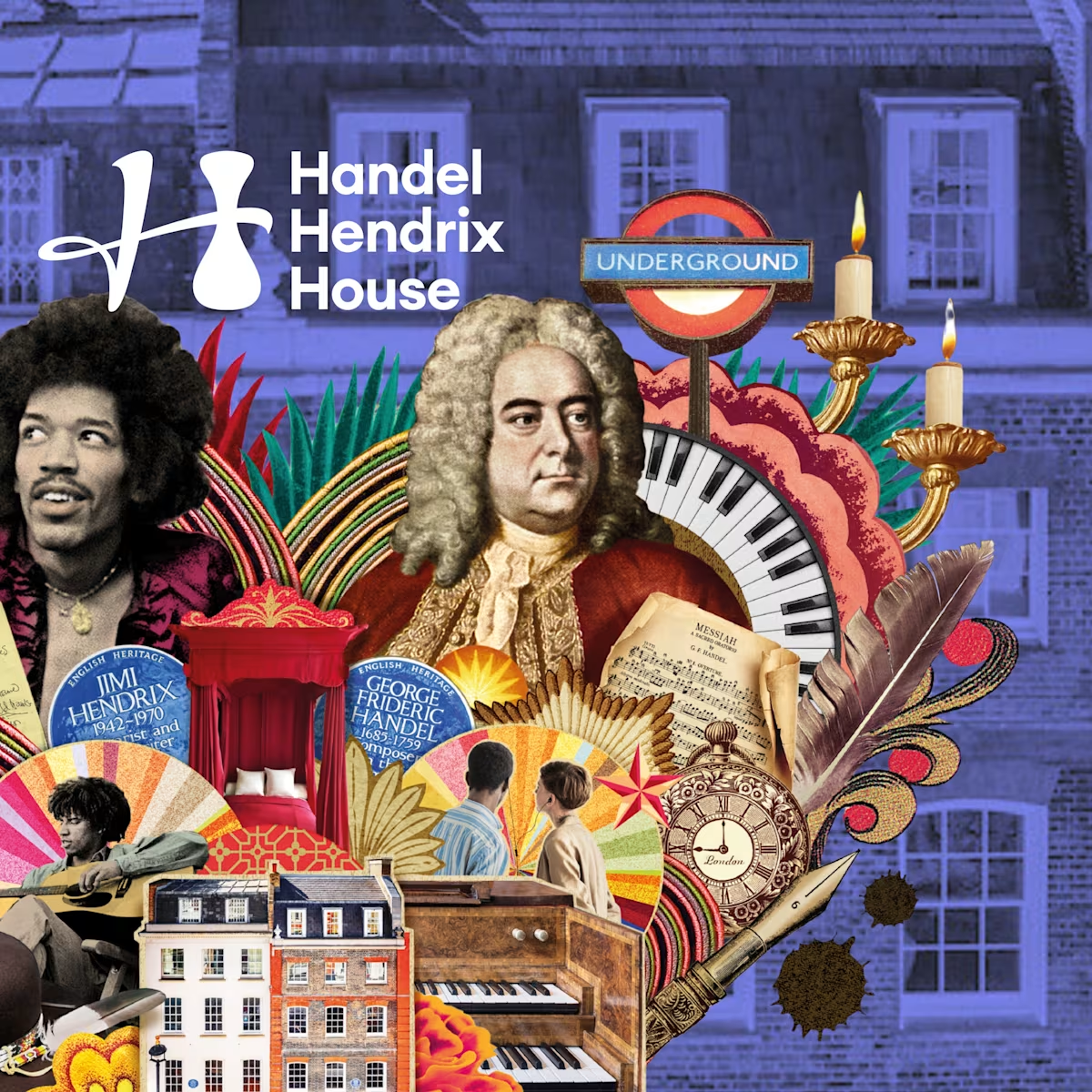
Handel at home: life and music on Brook Street
Continuo Connect’s Simon Mundy explores the history of the Handel Hendrix House as the museum celebrates its 25th anniversary.
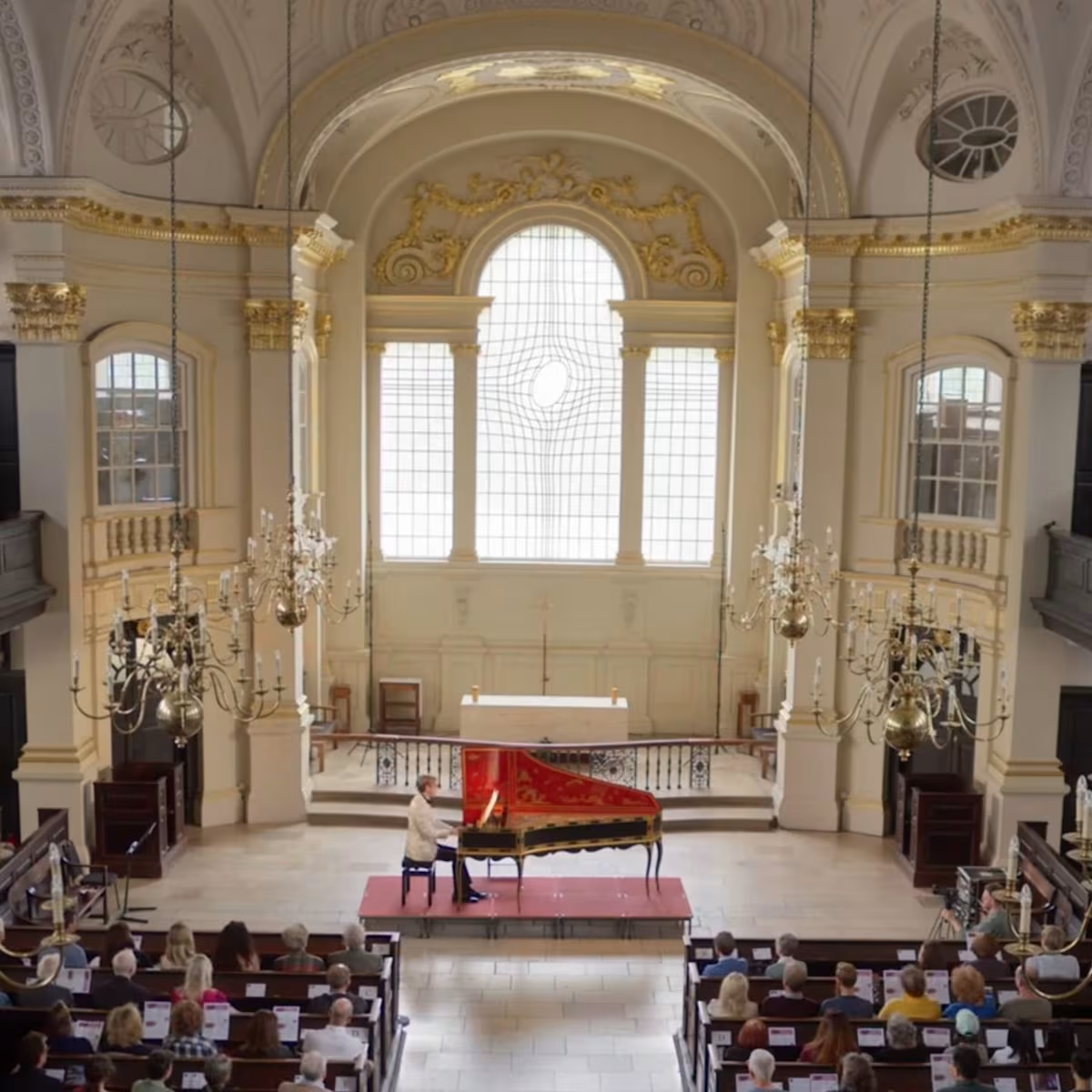
Nathaniel Mander: Bach’s Goldberg Variations
Haprsichordist Nathaniel Mander introduces and performs Bach’s monumental ‘Goldberg Variations’, 12 July 2024 at St Martin in the Fields, London.
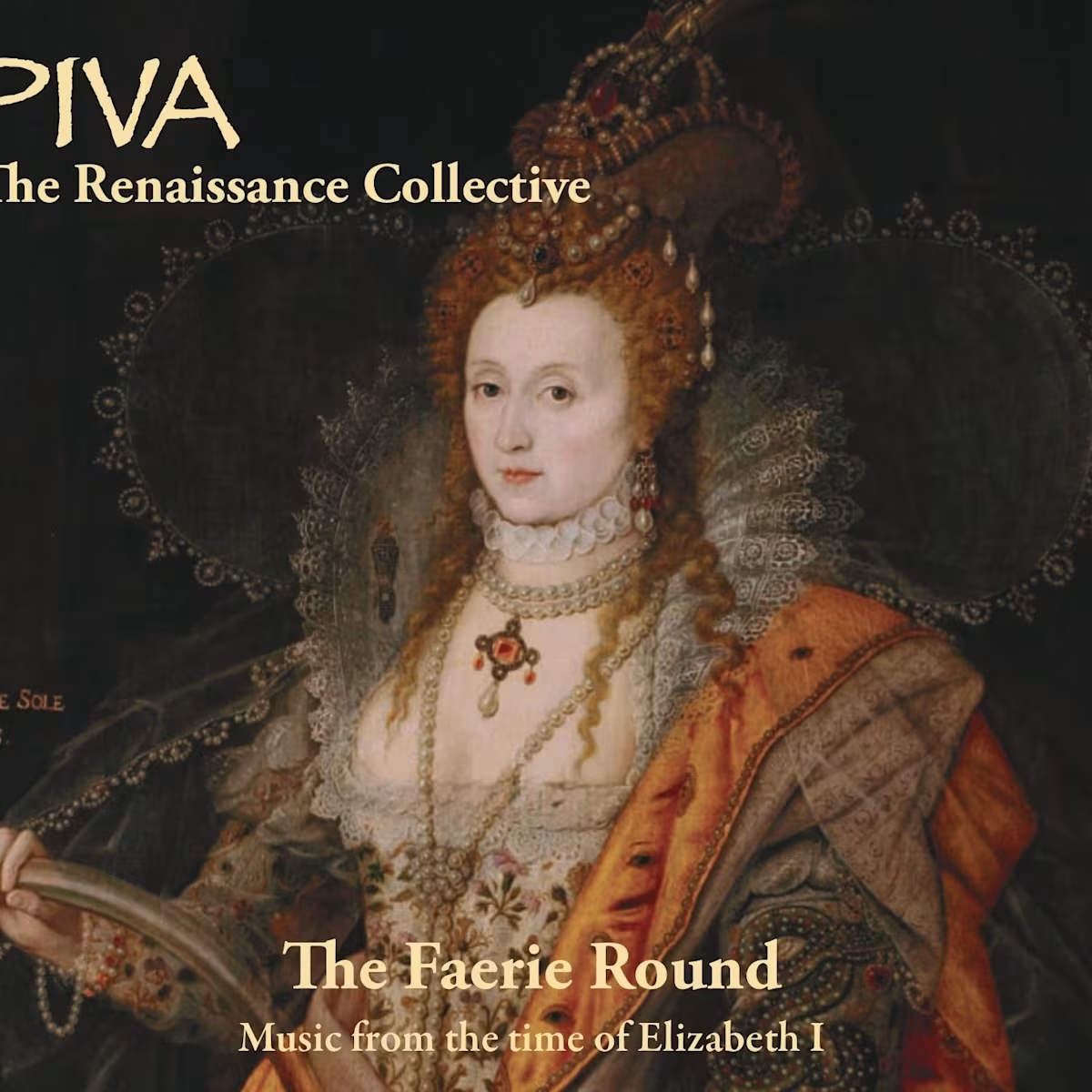
The Faerie Round: Music from the time of Elizabeth I
PIVA – The Renaissance Collective’s third album features dance and ballad music from late Elizabethan England.




